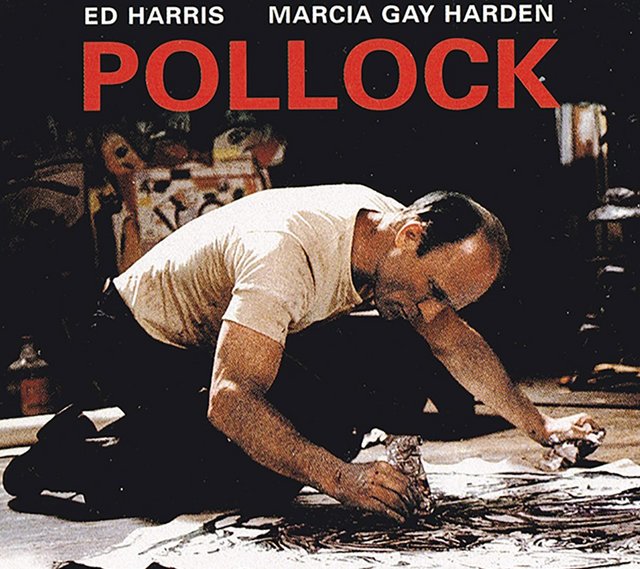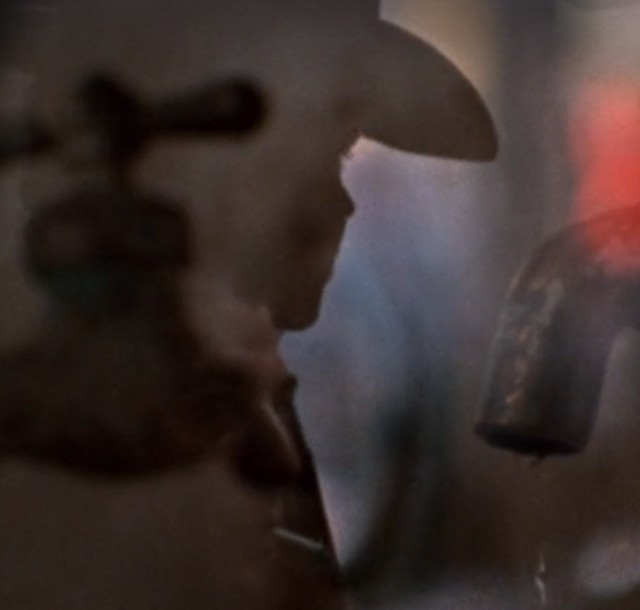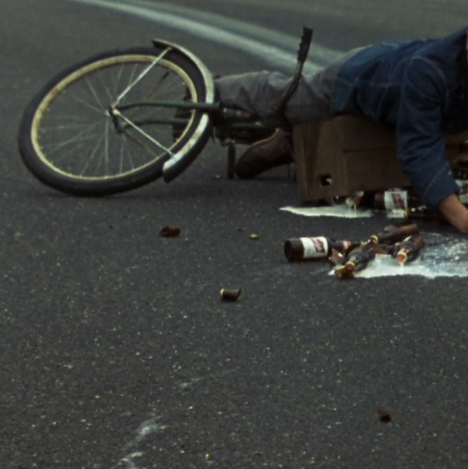
The importance of Pollock's paintings was in their physicality. It wasn't so much the dribbling, but the thrusting and slashing and murdering of that paint onto the canvas. They conjure images of the man himself, attacking his work. It is why they feel like an explosion of emotion. Because it is literally what they are. A barely controlled manifestation of what was inside Jackson Pollock into the outside world of the art gallery. Where everyone stares in hushed reverence. And simply by standing quietly and looking at his work, nearly prove the point that they might not understand it.
As a result, the physicality of Ed Harris' performance is what the film is all about. Harris clearly was a quick study at learning the techniques of this artist he is paying homage to, or somehow is simply channeling the spirit of Pollock in the way he moves about the floor of his gallery, flicking his paint bristles. Giving us a physical representation of the man who we normally can only envision as some noisy ghost while looking at his work. And, it is simply through watching him, hunched over, lost in his work, attempting to find a voice inside of the chaos he is unleashing with his paints, we can find a solution to the question so many people have towards the nature of creation: Why are so many artists such fuck ups?
The answer is inside of Harris. A mostly inarticulate man, who due to some awful storm brewing inside of him, had no choice but to devote his entire being to the splashing of paint in the pursuit of finding himself. A self obsession so profound that there can seemingly be no relief, even as he finds success. He slaves and drinks and smokes and worries and hates himself, and in the end, maybe he has some paintings which say something about that struggle. That might get hung on someone's wall. That might not be understood.
Giving support to his talent, his wife Lee Krasner (Marcia Gay Harding) is the one who seems to recognize his genius before even he does. She also has the ability to articulate the mystifying things he is doing into words, employing her deep understanding of the history of art and its many different movements in illustrating why he is great. But as obviously necessary her help is in keeping him on his feet and painting, her constant analysis of his work also brings with it the pain that, even as his biggest supporter, she seems only to understand him through specific artistic techniques she has learned through reading books. She doesn't so much see the man himself in his paintings as she does an elemental force to decode.
It's the tragedy of the uncompromising artist. The goal is ultimately to get oneself in the work, so that maybe whatever is inside them, coiled up and impossible to put into words, can finally be seen. But that when finally successful, there is still no direct contact with the audience. They still have to reach for their reference books to try and understand what is simply there and staring them in the face. There is always an intellectual interference that gets in the way of ever being understood. As so as much as Pollock devotes his entire life to his work, the art world is designed to never really offer any relief to the artist. Just the constant spectre of future failures, or more successes which aren't any more satisfying.
Pollock is one of the purest examples in film of the hopelessness of artistic achievement. It is a grim and unhappy thing, capturing the meteoric rise of one of the 20th centuries great creative geniuses, and how even that can't help but feel like a cosmic loss.





















 crumbsroom wrote:
crumbsroom wrote:




